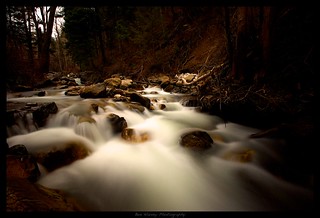Open Education Week, Day 2
I haven't participated in a lot of open courses, but one that I'm involved with right now is "
Connected Learning with Youth Voices" at
Peer to Peer University. A member of the community asked how teachers manage their students' digital work. Back in the pre-Internet classroom, this type of question would have been referred to as
handling the paper load, but now I think of it as
managing the digital flow.
I know that one answer to managing all of my students' digital work would be to just have them work in learning management systems like Blackboard or Angel or Turnitin; that would certainly make things more convenient. But as a student having composed in these spaces myself, I have to say that I don't like systems where content is password protected. An LMS might work for a lot of people, but these places don't work well for the way I teach because I'm trying to help students navigate and leverage the affordances of new media landscapes.
For instance, I think all
photographers benefit from participating in sites like Flickr, where people who are passionate about photography congregate. And I want
my students to have meaningful discussions with other students on
Youth Voices; that means connecting with people who aren't necessarily in our geographical area and who don't always share a similar world view.
So back to how to manage all this. One thing I do to just get a handle on it all is to set up a Google Spreadsheet with links to my students' Flickr photostreams, Youth Voices discussions, shared Google Docs, and email addresses. Initially it takes some time to set this up, but the result is a one-stop portal to the various aspects of their digital learning portfolio.
Another FAQ is how to assess student digital work. This is a difficult question because the assessment depends on the situation and the purpose, but in general here are some thoughts. As far as their image composition goes, their photostream should show
these traits; their video compositions should have those same qualities but also have clear audio and tell a compelling story. Here's
a link to a self-assessment tool for my students discussion posts on Youth Voices. I treat comments as a separate genre, and so I think
good comments should do these things.
I know I could make things easier on myself, but I've come to believe that the learning my students do is most powerful when it's out in the open.




